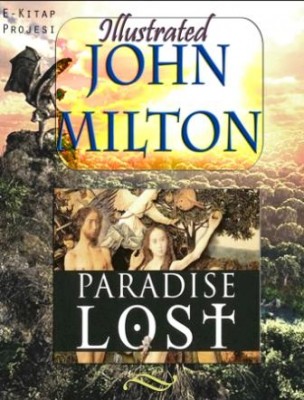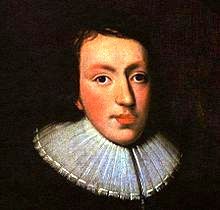Paradise Lost is an epic poem in blank verse by the 17th-century English poet John Milton (1608–1674). The first version, published in 1667, consisted of ten books with over ten thousand lines of verse. A second edition followed in 1674, arranged into twelve books (in the manner of Virgil's Aeneid) with minor revisions throughout and a note on the versification. It is considered by critics to be Milton's "major work", and helped solidify his reputation as one of the greatest English poets of his time.
The poem concerns the Biblical story of the Fall of Man: the temptation of Adam and Eve by the fallen angel Satan and their expulsion from the Garden of Eden. Milton's purpose, stated in Book I, is to "justify the ways of God to men"
Satan:
Satan is the first major character introduced in the poem. Formerly called Lucifer, he was the most beautiful of all angels in Heaven, and is tragic figure who describes himself with the now-famous quote "Better to reign in Hell than serve in Heaven."[7] He is introduced to Hell after he leads a failed rebellion to wrestle control of Heaven from God. Satan's desire to rebel against his creator stems from his unwillingness to be subjugated by God and his Son, claiming that angels are "self-begot, self-raised", and thereby denying God's authority over them as their creator.
Satan is deeply arrogant, albeit powerful and charismatic. Satan's persuasive powers are evident throughout the book; not only is he cunning and deceptive, but he is also able to rally the angels to continue in the rebellion after their agonising defeat in the Angelic War. He argues that God rules as a tyrant and that all the angels ought to rule as gods.
Satan is comparable in many ways to the tragic heroes of classic Greek literature, but Satan's hubris far surpasses those of previous tragedies. Though at times he plays the narrative role of an anti-hero, he is still commonly understood to be the antagonist of the epic. However, the true nature of his role in the poem has been the subject of much notoriety and scholarly debate. While some scholars, like the critic and writer C. S. Lewis, interpret the poem as a genuine Christian morality tale, other critics, like William Empson, view it as a more ambiguous work, with Milton's complex characterisation of Satan playing a large part in that perceived ambiguity.
Adam:
Adam is the first human created by God. Though initially alone, Adam demands a mate from God. Considered God's prized creation, Adam, along with his wife, rules over all the creatures of the world and resides in the Garden of Eden. He is more intelligent and curious about external ideas than Eve. His complete infatuation with Eve, while pure in and of itself, eventually contributes to his joining her in disobedience to God.
Unlike the Biblical Adam, before he leaves Paradise this version of Adam is given a glimpse of the future of mankind (including a synopsis of stories from the Old and New Testaments) by the angel Michael.

































